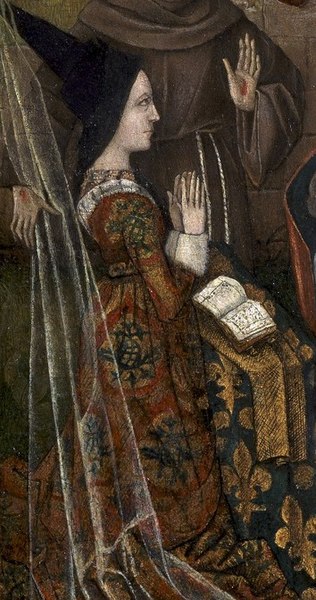Charles VIII, called the Affable, was King of France from 1483 to his death in 1498. He succeeded his father Louis XI at the age of 13. His elder sister Anne acted as regent jointly with her husband Peter II, Duke of Bourbon until 1491, when the young king turned 21 years of age. During Anne's regency, the great lords rebelled against royal centralisation efforts in a conflict known as the Mad War (1485–1488), which resulted in a victory for the royal government.
16th-century portrait
Marriage to Anne of Brittany at the Château de Langeais.
French troops under Charles VIII entering Florence, 17 November 1494, by Francesco Granacci
Monument to the children of Charles VIII, Tours Cathedral
Louis XI, called "Louis the Prudent", was King of France from 1461 to 1483. He succeeded his father, Charles VII. Louis entered into open rebellion against his father in a short-lived revolt known as the Praguerie in 1440. The king forgave his rebellious vassals, including Louis, to whom he entrusted the management of the Dauphiné, then a province in southeastern France. Louis's ceaseless intrigues, however, led his father to banish him from court. From the Dauphiné, Louis led his own political establishment and married Charlotte of Savoy, daughter of Louis, Duke of Savoy, against the will of his father. Charles VII sent an army to compel his son to his will, but Louis fled to Burgundy, where he was hosted by Philip the Good, the Duke of Burgundy, Charles' greatest enemy.
Louis XI wearing his Collar of the Order of Saint Michael, c. 1469
In this painting by Jean Fouquet, Louis's father Charles VII is depicted as one of the three magi, and it is assumed that Louis, then dauphin, is one of the other two.
Margaret of Scotland
Charlotte of Savoy








